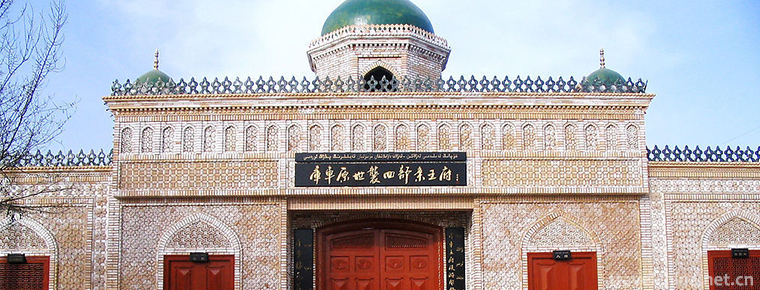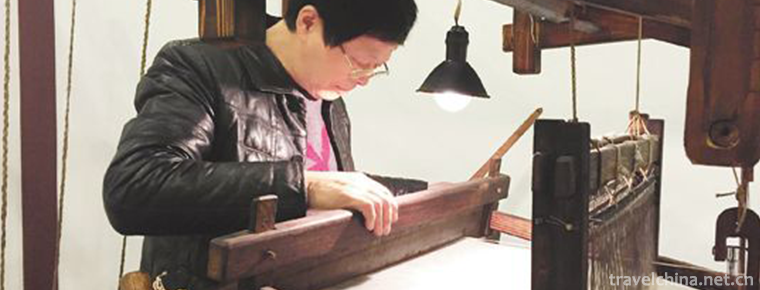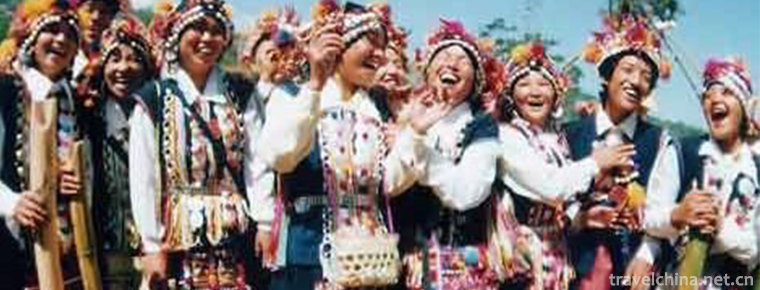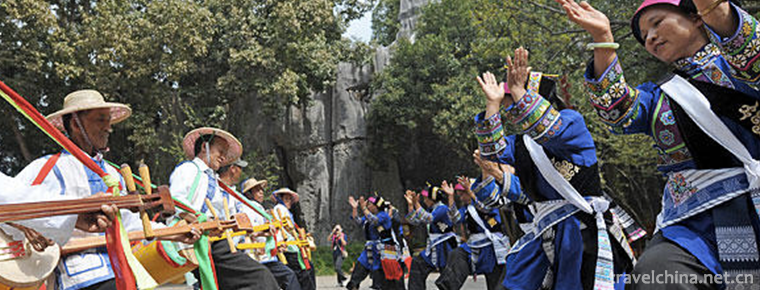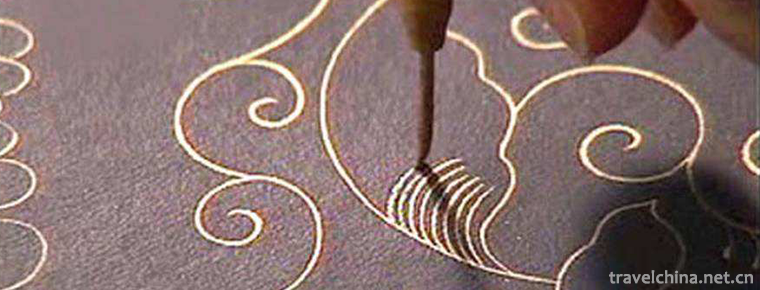Cai Yuanpei
Cai Yuanpei
Cai Yuanpei (January 11, 1868 - March 5, 1940), word crane Qing, also the word Zhong Shen Cai Zhen, Zhou Ziyu, Han nationality, Shanyin County, Shaoxing Prefecture, Zhejiang (now Zhejiang). Shaoxing (person), originally from Zhejiang Zhuji . educator,Revolutionist,Politician . Democratic Progressive people, the Executive Committee of the Kuomintang Central Committee, National Government Committee member the institute Dean. Republic of China The first chief of education.
From 1916 to 1927 Peking University The headmaster changed Peking University and opened the "academic" and "free" style. From 1920 to 1930, Cai Yuanpei also served as president. Sino French University Principal. He joined the anti Qing Dynasty in his early years. Monarchy In the early years of the Republic of China, the struggle was formulated. Higher Education The first act of the University decree .
Northern Expedition During the period, the national government established its capital. Nanjing After that, he presided over the administrative committee of education. University of the Republic of China and Academia Sinica Leading education and academic system reform. In 1927, he joined the launching of the campaign to protect the nation and save the party. From 1928 to 1940, the president of the Central Academy of Sciences carried out the idea of academic research. Cai Yuanpei went to Germany and France to study and study several times. Philosophy,literature, Esthetics,Psychology And cultural history, laying the ideological and theoretical foundation for his dedication to the reform of feudal education. . In 1933, Cai Yuanpei proposed the creation of a national government. Central Museum He also served as chairman of the first Council in person. In March 5, 1940 Hong Kong Died. Burial at the Hongkong cemetery.
Paul Mauriat's History
In January 11, 1868, Tongzhi Ding Mao was born in Shanyin County, Shaoxing Prefecture, Zhejiang Province in December 17th. In 1871, Tongzhi's ten year old Cai Yuanpei, 4, went to school.
In 1878, in the four year of Guangxu Wu Yin, Cai Yuanpei was 11 years old, and his father, Cai Guangpu, died of illness.
In 1879, Guangxu reign period Five years 12 years old
When I live in my aunt's home, I study. In 1880, in the six year of Guangxu, when Cai Yuanpei was 13 years old, he was transferred from his aunt's home to Li's family. In 1884, in the ten year of Guangxu Jiasheng, Cai Yuanpei was selected as a scholar when he was 17 years old. In 1885, in the eleven year of Guangxu, Cai Yuanpei set up a library to teach when he was 18 years old.
In 1889, Guangxu was ugly for fifteen years, when Cai Yuanpei was 22 years old. Raise people . He married his first wife in the same year. Wang Zhao . In 1890, in the sixteen year of Guangxu, when Cai Yuanpei was 23 years old, he went to Beijing to try and become a middle school student. successful candidates of the national civil service examination No test.
In 1892, when Cai Yuanpei was 25 years old in Guangxu eighteen years, he was selected as a Jinshi in the imperial examination. Imperial Academy Shu Ji. The examination results of the palace examination were two a and thirty-four (equivalent to thirty-seventh in the national unified examination), and the contents were "the geographical location of Tibet".
In 1894, when Cai Yuanpei was 27 years old, during the twenty year of Guangxu Jia Wu, he should be sent to the Hanlin Academy. In this year, the Sino Japanese war broke out and began to contact Western learning and sympathize with reform. In September 1898, he returned to Shaoxing to be supervised by the Chinese and Western schools in Shaoxing and advocated new learning.
In 1900, Cai Yuanpei was 33 years old in twenty-six years, because his wife was feudalistic. constraint The relationship between them has been in a state of discord, and when he gradually accepted it. occident After the new thought, she began to rethink the definition of women's rights. Convention of husband and wife "Readjusting the relationship with his wife Wang Zhao.
In the summer of 1901, Cai Yuanpei was twenty-seven years old. When he was 34 years old, he went to Shanghai to represent the school. Shanghai Cheng Ying senior high school The principal is the first president. He was hired in September 1901. nanyang college Economic special training classes. In January 1, 1902, in the twenty-eight years of Ren Yin, Cai Yuanpei held second wedding ceremonies in his life with Huang Zhongyu, his former student, in Hangzhou.
In 1902, Cai Yuanpei was 35 years old. Jiang Zhi Yu When he founded the Chinese Education Association in Shanghai and served as president, he founded the Patriotic Association and patriotic women's school. In 1903, in the twenty-nine years of Kui Mao, the activities of the patriotic society aroused the Qing government's vigilance and ordered the investigation. Cai Yuanpei moved to Qingdao, Japan, Shaoxing, Shanghai and other places, learning German on the one hand, preparing to study abroad in Germany to avoid the limelight. On the one hand, she was still engaged in education and revolutionary activities.
In 1903, in order to resist the Russian government's coveted North China territory, Cai Yuanpei worked with the anti Qing revolutionaries of Shanghai in the name of the Russian Council of comrades. Alarming Bell Daily ) In 1904, when he was thirty years old and 37 years old, he founded in Shanghai. Rehabilitation Society .
In 1905, thirty-one years 38
At the age of 60, the League was established and the Recovery Association merged. Sun Yat-sen Cai Yuanpei was appointed head of the Shanghai branch of the league.
In May 1907, when Ding was thirty-three years old and 40 years old, he was minister in Germany. Sun Bao Qi With help to Berlin, Germany University of Leipzig Lectures and studies in psychology, aesthetics and philosophy. One side learning, one side professor. Tang Shaoyi The first government of the Republic of China. cabinet Premier Cai Yuanpei, a Chinese teacher of 4 nephews, has been living abroad for nearly 4 years. In the 4 year of Germany, he wrote " History of Chinese Ethics And a number of academic books.
In early November 1911, Xuan Tong In the three year of 1911, Revolution of 1911 Erupt in Chen Qi Mei Cai Yuanpei hurried under the demand of electricity. Siberia Return home.
In January 4, 1912, the first year of the Republic of China, Provisional government of the Republic of China When he was founded in Nanjing, he took up the education General of the provisional government of Nanjing. Under the guidance of Cai Yuanpei, the Ministry of Education asked the public for possible. national anthem Later, the Provisional National Anthem of the Republic of China was promulgated. Shen en Fu Lyrics, Shen Pengnian's compose of the national anthem, song title "five flag Republic song" (Republic song of the Republic of China).
In January 19, 1912, in the first year of the Republic of China, he promulgated the "Interim Measures for general education" and presided over the formulation of the "University decree" and "middle school order". This is China's first university and secondary school decree. He stressed that schools and universities should be built into national schools. let Provisional government of Nanjing The chief of education advocated the adoption of the western educational system, abolishing the reading of scriptures, implementing the reform measures such as co education and so on, and establishing the system of bourgeois democratic education in China. The two revolution After failing, the family members went to law. li shizeng And so on Law Society for work and frugal society .
In February 1912, Lu Xun He was invited to work in the Ministry of education. In July 1912, Cai Yuanpei refused to cooperate with him. high Qing official The government resigned. In 1913, when Cai Yuanpei was 46 years old, he went back to France to do academic research in the two years of the Republic of China. In the three years remaining in Europe, he also compiled many works of philosophy and aesthetics.
In June 1915, in the four years of the Republic of China, when Cai Yuanpei was 48 years old, he and Li Shi had Wu Yu Zhang He initiated the Chinese law education association and initiated work study in France. He hoped that the sub organization would help more Chinese to study in Europe. Zhou Enlai,Deng Xiaoping It was through the help of this organization that they successfully studied in France.
In the summer of 1916, twice president of the republican government at Peking The government of Beijing finally restored the "early years of the Republic of China". Provisional constitution " Sun Yat-sen,Huang Xing A large number of exiled revolutionaries returned to Zhejiang, and some of the members of Parliament in Zhejiang also sent power to Cai Yuanpei, who was far away in France. He said he was going to be elected as the governor of the province.
In November 8, 1916, Cai Yuanpei and Wu Yu Zhang A boat from Marseilles returned to Shanghai. In December 26, 1916, he was ordered to take up the post. Peking University Principal. Support New Culture Movement It advocates academic research and advocates "ideological freedom, inclusive and inclusive". The "54" campaign supports patriotic action among students and rescues students arrested. In January 9, 1917, Cai Yuanpei delivered his speech as president of Peking University. He put forward three requirements for students: one is to set purposes, two is to exercise virtues, three is to love teachers, and to place "holding the purpose" in the first place.
In 1917, Cai Yuanpei hired New Youth Editor in chief May Fourth leader As a liberal arts student, and engage Li Dazhao,Hu Shi,Qian Xuan Tong The "new school" figures teach in Peking University and adopt the policy of "ideological freedom and inclusive education", implementing the system of "professors running schools", advocating academic democracy and supporting the new culture movement. In the same year, Cai Yuanpei invited famous philosophers. philosopher reach Peking University teach India Philosophy ; artist renowned for creative development of both Chinese and Western painting techniques At the invitation of Cai Yuanpei, he returned to Beijing from Tokyo, Japan. Peking University Painting Society Tutor.
In July 1917, Hu Shi Returning home from the United States Hu Shi Not obtained Columbia University Doctoral degree, but Cai Yuanpei in order to allow Hu Shi to enter Peking University to help them forge academic qualifications.
In July 3, 1917, Cai Yuanpei left his enthusiastic inaugural speech at Peking University. twice president of the republican government at Peking The president proposed resignation, with euphemism, but his motive was depressed. Restoration of Zhang Xun .
In October 1917, during the six years of the Republic of China, when Cai Yuanpei was 50 years old, he presided over the Ministry of education to convene a meeting of representatives of higher education institutions in Beijing. He discussed the revision of the university regulations. The Liberal Arts Department of Peking University proposed a motion to eliminate the grade system and adopted the elective system. The north university elective system stipulates that every Monday class hour, one year after completion is a unit. The undergraduate course should fill 80 units, half of the compulsory courses, half of the elective courses (Science and technology should be reduced), graduation can be completed without restriction, and the preparatory course should be filled with 40 units, compulsory 3/4, and elective 1/4. Elective subjects can be interdisciplinary.
In 1918, he pointed out more clearly that "universities are not only institutions for purely studying knowledge, but also can not be regarded as places of qualification, nor can they be regarded as places for selling knowledge. A scholar should have an interest in studying knowledge, so as to develop the character of a learned man. "
In May 22, 1918, Cai Yuanpei opposed the government's betrayal of the government in a "military agreement between China and Japan", and resigned to the president.
In November 16, 1918, when Cai Yuanpei was 51 years old in the seven years of the Republic of China, the first World War was just over. Before organizing a rally in front of Tiananmen, he delivered a speech entitled "sacred labor". He put forward a clear idea of "understanding the value of labor" and chanting the slogan of "sacred labor".
In 1919, Cai Yuanpei abolished the branch in Peking University, and changed the academic department of the original department into 14 departments. The original literature, science and law were renamed the first, second and three hospitals respectively, and they were only the marks of each department's location.
In May 8, 1919, The May 4th Movement After the outbreak, Cai Yuanpei submitted his resignation in protest against the government's arrest of students in May 8th. And left Beijing on 9 th. In May 13, 1919, the principals of various tertiary institutions in Beijing resigned to the government to support Cai Yuanpei.
In June 15, 1919, in his manifesto "unwilling to be president of Peking University again," he said, "I can never be a free university president: freedom of thought is a common rule of world universities. After the Peking University Teachers and students urged to stay, Cai Yuanpei agreed to be the principal of Peking University Teachers and students.
In early 1920, Cai Yuanpei and Li Shi had Wu Jing Heng Use Boxer Indemnity He founded the Sino French university in Beijing. Cai Yuanpei was appointed president. In February 1920, Cai Yuanpei ordered permission. Wang Lan 3 girls, Xi Zhen and cha Xiao Yuan, took part in the Liberal Arts in Peking University. Public Universities A precedent for recruiting girls.
In May 1920, Cai Yuanpei hired geologists. minister of geology Professor of Geology Department of Peking University.
Safi, a famous writer, was invited to return to Peking University as a professor of literature. In August, he hired Lu Xun as lecturer for Peking University. At the end of 1920, he was sent to Europe by Peking University. And France Leon Herriot, mayor of Lyon University School of medicine, Lei Bin (Lepine), co founded Lyon. Sino French University The association decided to set up a Sino French university in Lyon.
In the spring of 1923, he was dissatisfied with the behavior of Peng Yunyi, the education chief of the northern government, who broke the rule of law and resigned from Beijing. During the autumn, he transferred to Europe to engage in research and writing, and to participate in the request of Britain, France and other countries to refund the Boxer Indemnity and set up educational matters. At the first National Congress of the Kuomintang in January 1924, Sun Yat-sen Nominated as alternate central committee member. Back in early 1926. In Shanghai, he joined the Federation of Jiangsu, Zhejiang and Anhui provinces, and worked with the northern expedition to plan for the three provinces' autonomy movement, which was wanted by Sun Chuanfang.
Since 1927, he has served as the Dean, attorney general and supervisor of the Nanjing national government. In March 28, 1927, Cai Yuanpei was chairman of the Central Committee of the Kuomintang. Wu Zhi Hui The impeachment proposed by the Communist Party was seconded and advocated "abolish the party membership of the Communists in the Kuomintang". In April 2nd, Cai Yuanpei was again chairman, and Cai Yuanpei echoed again. Wu Zhi Hui About the impeachment of the Communist Party's proclamations, and came up with the evidence of the Communist Party's evil party and the Communist Party's report on the disaster party in Zhejiang Province. In the first two years after the founding of the Kuomintang government, Cai Yuanpei remained on the side of Jiang Jieshi in politics and supported the "Communist Party of Nanjing". .
But unlike other people, he did not support indiscriminate killing in the implementation of the party's purge. Instead, he hoped to incorporate such political crackdown into a more standard rule of law. . In the early days of the Qing Dynasty, Cai Yuanpei criticized the Zhejiang Party committee's slash of human life and demanded that three principles must be implemented in the party's purge. And came to rescue the Communists and revolutionary youths who might be arrested by the Kuomintang. . In order to dissuade the Kuomintang authorities from killing in Nanjing, Cai Yuanpei wrote a special article to advise the Kuomintang authorities to inherit Sun Zhongshan's noble character, to serve others in good faith, and to stop killing. .
Later, Cai Yuanpei focused his energies on the establishment of the Central Research Institute. He became president of the Central Academy of Sciences, and began to focus on national culture, education and science and technology, and resigned from other duties. . After the September 18 Incident, it advocated resistance to Japan and supported Kuomintang communist cooperation. 1932, and Song Qingling,Lu Xun And other initiating organizations China League for Civil Rights We should actively carry out the Anti Japanese patriotic movement. Zeng Dian rescue Kai Hui Yang Martyrs, rescue Xu de Heng And other patriotic democrats, rescue Ding Ling Zhu Yiquan and other Communists .
In 1933, Cai Yuanpei proposed the creation of a national government. Central Museum (now Nanjing Museum Predecessor, and personally served as chairman of the first Council. In the early days of the outbreak of the war of resistance against Japan, Cai Yuanpei and Li Lin Xiang,Hu Yue Zhi Shanghai cultural celebrities joint organization was established. Shanghai cultural salvation Association We actively organized the cultural circles and the masses to invest in the campaign of resisting Japan and saving the nation. In addition, Cai Yuanpei and Li Lin, such as the founding members of the Shanghai cultural salvation Association, jointly issued a long statement with the heads and professors of all the major universities in the country, exposing the evil atrocities committed by the Japanese army intending to destroy the educational institutions in China, and organizing the international propaganda committee under the Salvation Association to expand external publicity and win the support of people from all over the world. In March 5, 1940, he died in Hongkong. After the death of Cai Yuanpei, celebrities from various major political parties, groups and dignitaries sent a telegram of condolence. .
Academic theory
His mode of education is novel and independent. He believes that education is the foundation of national prosperity and the foundation of national prosperity and strength. The educational thought is flexible and inclusive. It does not exclude academic disputes and widely absorbs various directors. "Educator, develop the cause of personality." He advocated that education should pay attention to students and oppose rigid rigidity. He also advocated new educational concepts such as aesthetic education, health education and personality education.
Cai Yuanpei holds that education has two basic functions in society: one is to lead, the so-called "education to guide society, not to follow society"; two, in service, "to form a talent in school, to enter the society in the future", or "to learn knowledge on the one hand or to serve society" on the one hand.
Freedom of thought is all inclusive.
Cai Yuanpei was generous and compassionate. He had a thorough observation of Chinese society and customs, twice visited Europe, the spirit of science after the Renaissance and the trend of thought after the French Revolution. He advocated civil rights and women's rights, advocated freedom thought, committed to abolishing the old customs of "studying for official", opened up scientific research atmosphere, attached importance to civic moral education and incidental world outlook, outlook on life and aesthetic education.
philosopher Cai Yuanpei once said that it is very correct to derive a new trend of thought and scholarship for the Chinese people and break through the old customs and promote the overall political situation. It is precisely because Mr. Cai's inclusiveness and freedom of thought have made the new culture a foothold, that Peking University has become a fortress of the new culture movement, and that the scientific and democratic ideas have been disseminated. Therefore, in this sense, Cai Yuanpei is not only the founder of Modern Peking University, but also the founder of Chinese modern university concept and spirit.
As a brilliant pioneer of modern Chinese culture, Cai Yuanpei's famous cultural thoughts and academic viewpoints have had an important impact on the historical process of China. When Cai Yuanpei was president of Peking University, he put forward the idea of "inclusive and inclusive", which not only became an important guiding ideology for him to preside over the education work in Peking University, but also a school running principle he insisted on. After this idea was put forward, a group of representatives with new culture and new ideas entered Peking University, and Peking University became the highest academic institution with active Chinese thought and academic prosperity. Therefore, the idea of "inclusive and inclusive" has played a positive role in accepting new culture and opposing feudal culture.
Ethnic Studies
Mr. Cai Yuanpei's contribution to education and aesthetics is obvious to all, but his contribution to ethnology is rarely known. In his chronicle of writing, Cai Yuanpei said that one of his dreams is to write a comparative ethnology to study the age of ethnology.
When Cai Yuanpei went to Beijing for a palace examination, he elaborated on Tibet's "vast territory, mountains and rivers" in the theme of Tibet.
In 1901, Cai Yuanpei said in the theory of teaching and learning in the school, "the past history only records the things of emperors, and does not remember the customs of the people's livelihood. "
From 1908 to 1911, he studied philosophy, literature, history of civilization and Ethnology at University of Leipzig, Germany.
In August 1924, he attended the twenty-first Congress of the International Association of nationalities. From November 1924 to February 1926, University of Hamburg in Germany specializes in ethnology.
From 1926 to 1934, Cai Yuanpei published articles such as "ethnology", "ethnology and sociology" and "ethnology evolution view".
When the central academia was founded in 1927, Cai Yuanpei hoped to set up a National Institute of ethnology. But because of limited manpower and material resources, this hope could not be realized.
In 1928, the Institute of Social Sciences was established, and Cai Yuanpei set up an ethnology group in the Institute. The following studies were carried out in the ethnology group.
1. Investigation of Lingyun Yao in Guangxi
2. Investigation and study of Gaoshan Nationality in Taiwan
3. Investigation and study of Hezhen nationality in the lower reaches of Songhua River
4. The study of the world's ties and original writings
5. Chinese translation of foreign nationals
6. Collection of research materials for ethnic minorities in Southwest China
Education independence thought
Educational independence, as an ideological trend, sprouted before "54" and flourished in 1920s. Because of the economic slump of warlords, the Beiyang government did not attach importance to education. The proportion of education budget in the national budget was very low, for example, the education budget in the national budget before and after 1920 accounted for only about 1.2%. The limited budgetary funds are often appropriated and misappropriated, nor can they be put in place, resulting in a shortage of educational funds and an unsustainable educational career.
Cai Yuanpei has always regarded education as the basic way to save the nation, and he advocated the idea and academic freedom. In addition, as president of Peking University, he has deep feelings about bureaucratic handicap and devastating education. Therefore, he is an active advocacy and supporter of educational independence and guided theoretically. In March 1922, he published an article on education independence in the new education. He expounded the basic viewpoints and methods of educational independence and became an important chapter in the trend of independent education.
He thinks the opposition between Party and education is:
(1) education should balance the development of human individuality and group character. Political parties are not the same. It needs to create a special group, serve the party and obliterate the personality of the educated.
Education is far from being effective. In the future, the effect can not be expressed in a short time. While political parties seek to get close to work, they often consider only immediate interests.
3. Under the background of party politics, the change of political power among parties, and the education of political parties will inevitably affect the stability of educational policies and policies, and affect the effectiveness of education. So he thought education should be free from all political parties.
In order to realize the real independence of education, Cai Yuanpei designed specific measures for educational independence, educational administration independence and education independent of religion. Among them, the plan for independent education administration is: several universities in the whole country, a university in each district, higher education in the District, primary and secondary education, social education, and cultural and academic matters are organized by the University. The affairs of universities are presided over by the education committee composed of university professors. The principals are elected by the Education Committee. The presidents of universities and colleges form a higher education conference to deal with the affairs of universities. The Ministry of education is only responsible for handling matters related to the central government and the educational statistics report, which are decided by the higher education conference, and does not interfere in the affairs of University districts. The general education department must be accredited by the higher education conference. This assumption became the framework of the implementation of the "university district system" in the early years of the Nanjing national government.
Discussion on the nature of University
Cai Yuanpei thinks big. Learning should be the institution of higher learning. This is the guiding ideology of Cai Yuanpei's running school and the starting point of his university education thought. As early as May 16, 1912, he attended the opening ceremony of Peking University at the capacity of the chief of education. In his speech, he put forward that "university is the place to study noble knowledge." After being president of Peking University. He even repeated this idea. In January 9, 1917, in his speech as president, he clearly explained to his students: "there is a purpose for all of you to come here to study. The nature of the purpose of the university must be predicted. It is inevitable that this school will become a professional school. In universities, however, it is not the case.
He also suggested that universities should not only engage in teaching, but also conduct scientific research. He asked the university teachers not to instille fixed knowledge, but to have a strong interest in learning, and to arouse students' interest in study. In order to enable universities to undertake the dual tasks of teaching and scientific research, he strongly advocated that "every university must have all kinds of scientific research institutes". In his article on the reasons why universities should set up various branches of study, there are three reasons:
First, the university has no research institutes, and teachers are easy to get rid of the bad habit of making lectures without progress.
The two is to set up research institutes to create conditions for university graduates to further their studies.
The three is to enable senior college students to have scientific research opportunities under the guidance of their tutors.
Five educating simultaneously
Cai Yuanpei was the first educational thinker to put forward "Army national education, utilitarianism education, civic morality education, world outlook education and aesthetic education" which all can not be neglected in the recent education. It advocates five aspects of education. This is a remarkable characteristic of Cai Yuanpei's educational thought.
Background
Shortly after the revolution of 1911, Nanjing When the interim government was just established, it was put forward. In order to enable the bourgeoisie to carry out the reform of feudal education in an in-depth and healthy way, it is urgent to set up an educational aim that reflects the requirements of the bourgeoisie as soon as possible under the guidance of a unified educational ideology, to stipulate the objectives and requirements of the bourgeoisie for talent cultivation. Only in this situation, Cai Yuanpei published the famous in February 1912. Education paper The idea of "new education" systematically put forward the idea of "five aspects of education" simultaneously.
national military education
(1) from the perspective of the foreign environment, China is in a "strong neighbour" and is eager to defend itself, and the loss of national power over the years is not easy to recover by force.
(two) in terms of the domestic situation, to break the situation of becoming a "special class in the whole country", it is "no".
All nations are made up of soldiers, otherwise they will not have average power.
Utilitarian education
Utilitarian education is considered by Cai Yuanpei to be a means of rich countries. He believes that the competition of the world is not just about force, especially in financial resources. Therefore, to strengthen science and technology education, improve productivity and develop national economy, the country will be able to survive in the world competition if it is prosperous and powerful.
Civic Moral Education
He compared the moral concepts of "freedom, equality and fraternity" in modern western bourgeoisie to "righteousness, forgiveness and benevolence" advocated by ancient Chinese Confucianists. He advocated extensive absorption of foreign cultures, and at the same time "must choose to assimilate them", and "must be assimilated by" I "to eat instead of being assimilated to each other. He criticized some weak minded people who went abroad to study, that is, to abandon their" I "and assimilate them to foreigners.
Education of world outlook
The education of world outlook is based on dividing the world into the phenomenal world and the real world. idealism On the basis of the world outlook, people are required to follow the principle of freedom of thought and freedom of speech. They should not be bound to the idea of a certain doctrine, and at that time they had the liberation function of breaking over thousands of years of thought autocratic rule.
aesthetic education
Aesthetic education is the most important way to carry out world outlook education, so that people can go from the phenomenal world to the real world. The importance of aesthetic education originates from its characteristics. There are two obstacles to the existence of human beings from the phenomenal world to the physical world. One is the difference between people and me, the other is the pursuit of happiness. Two.
reform measures
Cai Yuanpei went to Germany and France to study and study several times. He studied philosophy, literature, aesthetics, psychology and cultural history, and laid the ideological and theoretical foundation for his dedication to the reform of feudal education.
Reform feudal education
The purpose of Peking University's reform is to change the concept of students, rectify the ranks of teachers, recruit enthusiastic teachers, develop research institutes, accumulate books, guide teachers and students to study interest, cultivate virtue and cultivate legitimate interests. The basic characteristics of Cai Yuanpei University's educational thought are democracy and science, and the aim is to run the university into a high level teaching and scientific research center.
Implementation of the principle of "freedom of thought, inclusive and inclusive"
"Freedom of thought, inclusive and inclusive" is also reflected in the appointment of teachers. Cai Yuanpei uses "academic attainments" as the main force to train all kinds of academic talents, thus making the teaching staff of Peking University appear in a school of sorts. For example, in the liberal arts faculty, we have gathered many famous representatives of many new cultural movements.
Things are also politically conservative and old scholars. In terms of political tendency, some are radical, some conservative, and others advocate improvement. Among the new figures, there are different representatives of Marx doctrine, three people's principles, anarchism and nationalism. At that time, Peking University, the "new trend" and the "national heritage" against, the vernacular and classical Chinese argument, a hundred schools of thought contended, flourishing.
Professor management, democratic management
In 1912, the University decree, which was presided over by Cai Yuanpei, has established the principles of university administration, which are managed by professors and managed democratically, stipulating the establishment of a Council of universities, the establishment of professors' associations in various disciplines, but not implemented in Peking University. When Cai Yuanpei arrived in Peking University, he was still "all school affairs", which was handled by a few principals and chief executives of the chief supervisor, and the seniors had not heard of it. After his appointment as president, Cai Yuanpei organized the Council in that year, and elected 1 members from every 5 professors in the school. The Council is the highest legislative body and authority in the whole school. Every major school affairs must be examined and approved by the Council, such as the formulation and examination of various articles and regulations of the school, the abolish of disciplines, the examination of teachers' academic titles, and the advance and final accounts of school funds. Next, he will organize the professors' meetings, and will be appointed by Professor Gong Ju, the head of the faculty, for a term of two years. His duties are to manage the academic affairs and plan the teaching work.
The reform of management system embodies the idea of Professor Cai Yuanpei's management and democratic management. The purpose is to hand over the responsibility of promoting the development of schools to professors, so that those who truly understand the academic will manage the school. The establishment of the new management system has changed the feudal bureaucratic style left behind by the Capital University, and improved the work efficiency, thus promoting the vigorous development of the school.
Communication with arts and Sciences, waste departments Changing the idea of "learning instead of learning"
After being president of Peking University, Cai Yuanpei further advocated that there are two reasons for the "academic campus": first, the two subjects of liberal arts and science, and the other departments should emphasize the use of them; second, the two branches of liberal arts and Sciences, with research institutes, laboratories and other equipment. If all other branches are set up, there will be more hospitals and workshops.
It is obvious that the academic branch, the University's special two branches of Arts and Sciences, is obviously the development of the "University's two main subjects of Arts and Sciences" in the first year of the Republic of China. The purpose is to highlight the nature of the university is to study the theory. In Cai Yuanpei's opinion, "learning" and "skill" can be divided into two nouns, "learning" as "learning theory" and "skill" as "application". Wen and Li are "learning". Law, business, medicine, industry and agriculture are all used as "Arts". Although science and technology are closely related, learning is basic and skill is a branch.
After seeing the abuse caused by literature and science, Cai Yuanpei further advocated "communication of Arts and science". He said that arts and sciences can not be divided into disciplines. The history and literature of liberal arts are all related to science, while philosophy is based on natural science. Similarly, all subjects in science are related to philosophy, especially in natural science, especially in natural science. Moreover, due to the interlacing of disciplines, some disciplines can hardly be distinguished from literature or science. Therefore, he advocated the communication of Arts and Sciences and one discipline. In 1919, Peking University carried out reforms to revoke the boundaries of Arts, science and law. The whole school set up 14 departments, the chief of the Department and the head of the Department.
set up a school
Cai Yuanpei attached great importance to labor education, civilian education and women's education. He runs a class in Peking University and a civilian night school, and founded a patriotic girls' school in Shanghai.
In 1928, he founded the National Academy of art. The China Academy of Art This is the first art education institution to implement undergraduate courses in modern China. It is also the only Chinese art university recognized by the United Nations Educational, scientific and cultural organization.
Character achievement
Cai Yuanpei made indelible contributions to modern and modern Chinese education and the Chinese revolution.
1. Since the beginning of Cai Yuanpei, a complete bourgeois educational ideology and educational system has been formed in China.
Two, his idea of "free thinking and inclusive" has made Peking University the birthplace of the new culture movement. New democratic revolution It created conditions.
Three, to protect the Chinese nation, a group of advanced and talented scholars.
Not only did he lay a solid foundation for the formation of the modern Chinese bourgeois University's educational theory, but also many of his insights, such as attaching importance to university's scientific research work, advocating "freedom of thought, inclusive", focusing on the development of student's personality, advocating "Gou Tongwen's theory", and "relying on education experts who have both knowledge and knowledge to carry out democratic management" have also had a significant impact on later generations.
Calligraphy works
Cai Yuanpei has studied hard and read extensively since his childhood. In the early years, he was a scholar. He had been trained and restrained by Chinese scholars, Jinshi, articles and calligraphy. Some experts believe that his calligraphy swept away the rules and regulations of the imperial examination system in the Qing Dynasty, and the natural changes of the lines and strokes showed the rhythm of calligraphy. He is good at regular script and running script. Most of the books seen in the market are running books.
With the improvement of Cai Yuanpei's understanding of the historical status and value of calligraphy, Cai Yuanpei's book still has much room for improvement in the market at home and abroad, because Cai Yuanpei is a mentor of the new culture movement in the early twentieth Century, and a banner of modern Chinese culture celebrities. Besides his artistic value, his book has a high history and literature and cultural value.
Emotional life
Cai Yuanpei has gone through 3 marriages in his life. These 3 marriages confirm the change of Cai Yuanpei's life thought, and also confirm the vicissitude of modern Chinese history.
First marriage
In 1889, Cai Yuanpei married his first wife. Wang Zhao . Cai Yuanpei's first marriage was complete.
It was the old marriage of the parents and the matchmaker. Cai Yuanpei never even met Wang Zhao before the wedding. Wang Zhao has cleanliness and spends a lot of money, but Cai Yuanpei has a bold and uninhibited nature. He is more male chauvinist. He often asks Wang Zhao to obey him unconditionally in all matters. Two people often quarrel after marriage.
In 1900, Cai Yuanpei, who accepted western new ideas, began to rethink the definition of women's rights. He wrote the Convention on husband and wife and readjusted his relationship with his wife, Wang Zhao. The couple who had been married for more than 10 years gradually understood each other and restored their feelings. Unfortunately, it didn't last long. Wang Zhao died of illness this year.
The second marriage
At the time of Wang Zhao's death, Cai Yuanpei was just 33 years old. He had gained fame in the knowledge circles in Jiangsu and Zhejiang provinces. Cai Yuanpei put forward five conditions for the matchmakers: the first is women who do not bind their feet; the second is literacy.
Third, a man should not marry a concubine or marry a wife; fourth, if a husband dies first, his wife can marry again; fifth, a disagreement can be divorced. When the news spread, the media suddenly avoided each other.
Maybe it was fate. When Cai Yuanpei was in Hangzhou, he saw a picture at a friend's home one day. Claborate-style painting The lines are beautiful and the inscriptions are extremely successful. As soon as he inquired, the writer was Huang Shizhen, also known as Zhong Yu, the daughter of Huang Erxuan, a famous scholar in Jiangxi. Huang Zhongyu came from a scholarly family, not only without foot binding, but also proficient in calligraphy and painting, and filial piety to his parents, which fully accords with Cai Yuanpei's mate selection standard.
On New Year's day in 1902, Cai Yuanpei held second wedding ceremonies in his life in Hangzhou. The wedding was in western style. Cai Yuanpei was decorated with red sticks. Confucius "Two words, instead of hanging the tradition of the three star painting axis, instead of making a bridal chamber in the form of a speech. In 1907, Cai Yuanpei, who was already near the age of no doubt, began his 4 years of studying abroad. In Germany, in 4 years, he wrote " History of Chinese Ethics "Cai Yuanpei changed from the original male chauvinism to a champion who seeks equal rights for women. His second wife, Huang Zhongyu, can play a very important role in this regard.
At the end of 1920, Cai Yuanpei sent a tour to Europe from Peking University. During this period, Huang Zhongyu passed away.
Love between teachers and students
At the age of 54, when he was president of Peking University, Cai Yuanpei decided to remarry. Then Zhou Jun Walked into his life.
Live. Zhou Jun is a student of the patriotic female school founded by Mr. Cai Yuanpei in Shanghai. This student always has a feeling of admiration and affection for Mr. Cai Yuanpei. She has not been married until she is 33 years old. Cai Yuanpei and Zhou Jun are two years old, 22 years old.
In July 10, 1923, Cai Yuanpei and Zhou Jun were in charge. Liu Garden Of Suzhou A grand wedding was held. On the tenth day after marriage, Cai Yuanpei and Zhou Jun took their children to Europe to study. Zhou Jun studied western art courses at the end of her husband's son. She poured her love for Cai Yuanpei in her work, Cai Yuanpei's bust. While Cai Yuanpei wrote a poem on it, "only the first person knows me, and the heart never wears." In March 5, 1940, when he was two days away from Zhou Jun's 50 birthday, Cai Yuanpei died of illness in Hongkong.
Posterity commemoration
Shaoxing urban area Pen fly Yes Former residence of Cai Yuanpei The museum is listed as a key cultural relic protection unit in Zhejiang province. And new "Yuan Pei primary school". Yuan Pei middle school "To commemorate. There is a monument to Cai Yuanpei on the campus of Peking University.
In January 11, 1988, China issued the birth of J145 Cai Yuanpei 120th anniversary.
Social evaluation
He has made great contributions to the development of China's new culture and education and the establishment of China's bourgeois democracy system. He tried to replace the family education with preschool children's public education gradually through the experiment and promotion of poor children's courtyard, and finally realized the ideal of public education for pre-school children.
Carrying out aesthetic education, conceive the aesthetic education of preschool children through three levels of teaching institutions, including nursery schools, nursing homes, kindergartens, etc.: prenatal education is the starting point of aesthetic education, and infants and their mothers live in an environment composed of natural beauty and artistic beauty. On the one hand, the aesthetic education of kindergartens should be carried out through special topics such as dance, singing and handwork. On the other hand, we should make full use of the aesthetic factors of other classes. During the 72 years of life, they will always abide by patriotic and democratic political ideas, commit themselves to abolish the educational system of feudalism, and lay the foundation for China's new educational system, making a pioneering contribution to the development of China's educational, cultural and scientific undertakings. He is an advocate of modern Chinese aesthetic education, advocating three aspects: family education, school education and social education.
Jiang Jieshi In his diary, he commented: "only in education is the crime of the party, but it is worse than what I have seen, but is guilty of education.
Scholar an early advocate of vocational education "There is something wrong, my teacher is disciplined, and everything is taught. If you want to know the truth, you should learn from a long Shaoxing middle school. Peking University Over the beginning. Late and presided over scientific research. The masses of people are always in the same direction. From the moral integrity to the culvert, they are sure to make a trend.
Liu Xiao Gang In the study of the practical source of literature, he said, "to Cai Yuanpei's" on the trend of Chinese language "and" the future of Chinese language ".
"It has officially divided the article into two major categories: practical writing and Fine Arts (i.e. artistic writing), and began to establish an independent theory of practical writing."
The Central Committee of the Communist Party of China praised it as a "prosperous old man" and a "meritorious service" in his condolences. National Government Issued a commendation order, praising it as "high school and high school" and "all over the world".
In his condolences, Mao Zedong praised him as "a master in academic circles and a model in life". He is a famous educationalist in China. He put forward the view that "learning is a science, practice is application", "learning is the foundation, and art is the branch and leaf".
Zhou Enlai wrote the couplet cloud: "from the line up to the war of resistance against Japan, the ambition of the gentleman is in the national revolution; from 54 to the human rights alliance, the trip of the president is democratic and free." With vivid language, he summed up the great achievements of Cai Yuanpei's life.
Film and television image
2011 movie Great cause for Party Building ": Wang Xueqi Play Cai Yuanpei.
2011 movie Revolution of 1911 ": Gao Bin Play Cai Yuanpei.
2012 TV series Our French days ": Tian Xiaojie Play Cai Yuanpei.
Musical 2014 President Yuan Pei ": Tang Zi Xing Play Cai Yuanpei.

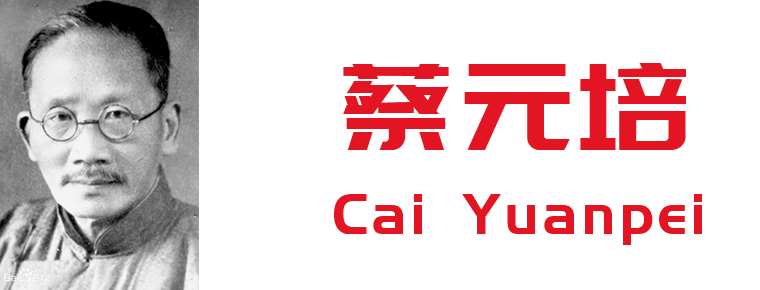
-
Eight Zhai ditch
Bazhaigou, located in Dongli Village, Guitai Town, the hinterland of 100,000 mountains, more than 50 kilometers northwest of Qinbei District, Qinzhou, Guangxi Zhuang Autonomous Region.
Views: 99 Time 2018-12-24 -
Black Valley Scenic Area
Black Valley, National AAAAA Tourist Scenic Spot, National Forest Park, National Geopark, China's Best Leisure Mountain, China's Best Green Low Carbon Tourist Leisure Spot.
Views: 106 Time 2019-01-13 -
Kuqa Wangfu Scenic Area
Located in Kuqa County, Xinjiang, the "Kuqa Wangfu" was built by Emperor Qianlong of Qing Dynasty in 1759 by dispatching Han craftsmen from the mainland in order to commend the local Uygur l.
Views: 150 Time 2019-01-29 -
Legend of Biashla
Biashraze, also known as Ashraze, is the most representative Bimo Master of the Yi nationality. The legend of Ashraze has become divine through oral transmission and artistic processing of language.
Views: 129 Time 2019-04-04 -
Silk Weaving Techniques
Silk weaving is a traditional Chinese handicraft with a long history. It consists of four parts: Yuhang Qingshui silk sponge production technology, Hangluo weaving technology.
Views: 166 Time 2019-04-04 -
Multi voice Folk Songs of Hani Nationality
Hani multi-voice folk songs are popular in several Hani villages in the eastern part of Azahe Township, Honghe County, with Puchun Village as the center. Their natural environment is closed and traffi.
Views: 169 Time 2019-05-02 -
Qingxu Caimen Building
Qingxu Caimen Tower is a local traditional handicraft in Qingxu County, Shanxi Province. Xu Caimen Tower in Qing Dynasty is said to have originated in Tang Dynasty. During the festival, people gathere.
Views: 144 Time 2019-06-11 -
Trichord Dance of Yi Nationality
Trichord dance of the Yi nationality is a folk dance handed down from generation to generation by the people of the Yi nationality. Different areas or different tribes of the Yi nationality have diffe.
Views: 138 Time 2019-07-12 -
Paper Paper Paper Processing Techniques
Traditional processing paper is to make raw paper into processing paper by dyeing, sizing, powder filling, waxing, mounting, spraying gold, leveling, watermarking, painting and other processes, in ord.
Views: 276 Time 2019-07-25 -
Anhui Medical University
Medical University Of Anhui (Anhui Medical University), referred to as "an Medical University", located in the capital of Anhui. Hefei City Yes. Key universities in Anhui By Anhui Provincial.
Views: 102 Time 2019-10-10 -
Da Zang Temple
Located in the north of malkang County, dazang temple is about 500 kilometers away from Chengdu City and is located in the deep mountains above 3000 meters above sea level. .
Views: 243 Time 2020-11-07



